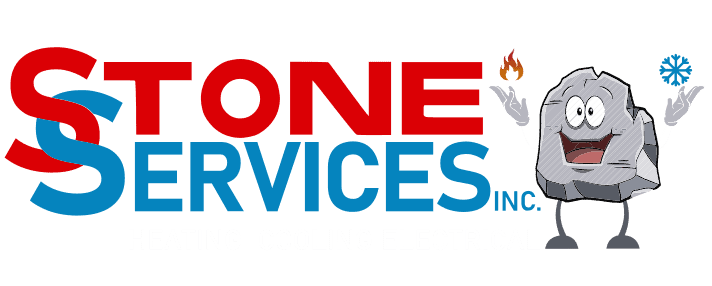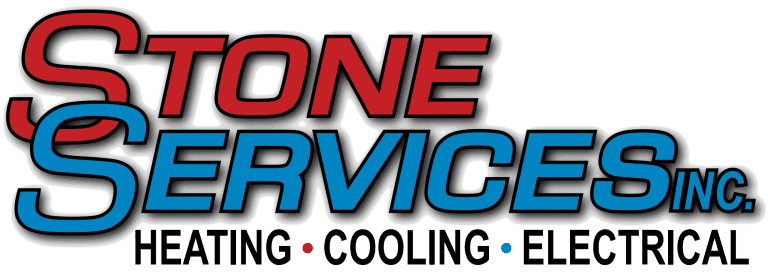Heating Repair - Chapel Hill - Durham - Carrboro
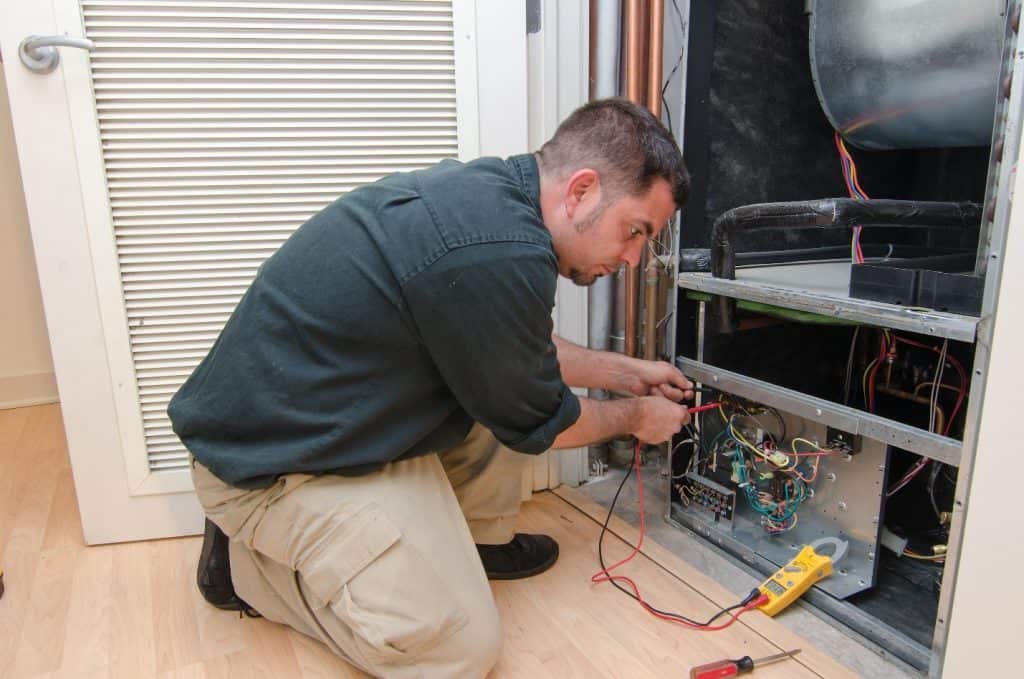
When the home’s heating system isn’t working as it should, it’s hard to get through the cold season. Before calling a technician, you can save a lot of money and time when you know what your problem is exactly. This article will guide you through the different issues that may arise with your heater and what heating repair steps to take.
Types of home heating systems
1. Furnace Heaters
Furnace heaters are the most common type of home heating systems in North America. A furnace operates by blowing hot air via ducts that, through air registers or grills, distribute the warm air to rooms in the building. A ducted hot-air or forced warm-air delivery system is considered this type of heating system. Electricity, natural gas, or fuel oil may be used to operate it.
1. Boilers
Boilers are basically large water heaters. While furnaces carry heat in warm air, boiler systems distribute the heat in hot water, which gives off heat as it passes through radiators or other devices in rooms throughout the house. The cooler water then returns to the boiler to be reheated. Hot water systems are often called hydronic systems. Residential boilers generally use natural gas or heating oil for fuel.
2. Heat Pumps
Heat pumps are basically two-way air conditioners. An air conditioner functions by transferring heat from the comparatively cold inside to the relatively warm outside. The heat pump reverses this in winter, scavenging heat with the aid of an electrical grid from the cold outside, and discharging the heat inside the home. Some heat pumps exchange heat with the warm underground. This kind of heat pump is called a geothermal pump. Forced warm-air distribution systems are used by nearly all heat pumps to transfer hot air around the building.
Tips for In-House Heating Repair:
Identifying the problem
By correctly defining the issue, you can help keep the maintenance expenses down. It could be your thermostat, for instance, that is not functioning properly. Have you got an older model which needs to be replaced? Does a battery need to be changed? First of all, testing the most basic features of your heating system will help you remain strategic in your repairs.
What do I do if my heater is blowing cold air?
Does the air that comes from your vents feel too cold? Or is the movement of air too weak? This could mean that the replacement of your air filters is overdue. Layers of soil and dust will stop the spread of warm air in your home. It could help get your heating back to normal by removing your air filters and running the vacuum around your blower.
What to do if my heat is not working?
Of course, if there is no fault for problems with your thermostat or your heater’s air filters, then you could be looking at something a little more complex. Your circuit breaker is likely to have been flipped. Go search your box and make sure the machine receives power while your heater is not operating at all.
However, for gas furnaces, you will need to search the pilot light. If this is on and the gas valve is properly opened, it might be time to contact the nearest HVAC technician to check for other issues. Often, they need to get their system reset as heaters are overwhelmed. Or there may be other elements that have to be removed.
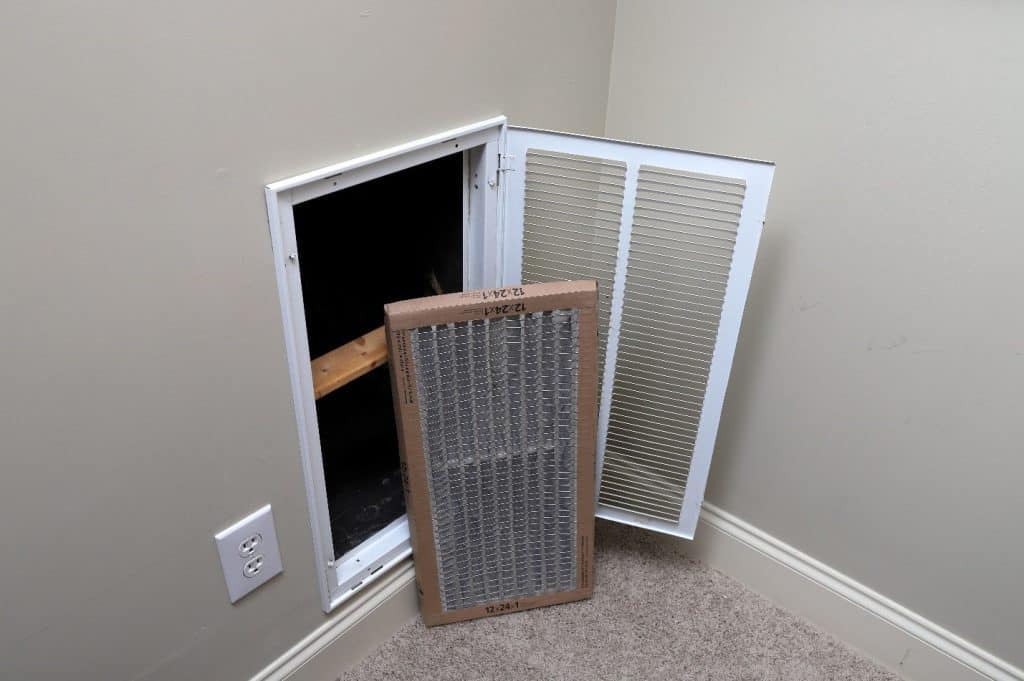
How do I reset my heating system?
- There are a few precautions that you can take to reset your heating system in the event the heat in your home stops working.
- Make sure your thermostats are set above room temperature in heat mode.
- To ensure that you are not out of fuel, check the gauge on your oil or propane tank to
- To ensure that it is not turned off, check your electrical breaker.
- Check that the switches of the heating system burner are in the on position. The controls are situated outside of the service or mechanical room at the top of the basement staircase and on the heating panel itself.
- You should not attempt to restart the furnace or boiler until you have checked that all of the switches are on.
- Locate the red reset button on the heating system itself to reset the system.
- Push and hold the reset button for 5 seconds.
- If your heater still doesn’t turn on, you should contact an HVAC technician immediately.
Basic Heating Repair Tips:
My heat pump won’t start, what should I do?
If your heat pump isn’t starting at all, there is probably a problem with either the thermostat, or your heater’s power receiving unit. Here’s what you can do:
- Make sure that the thermostat is set to the right setting and temperature. If the thermostat has recently been updated, the new thermostat could be the wrong kind, a heat pump thermostat in particular. Electronic devices may be fried by an incorrectly wired thermostat, stopping the heat pump from operating correctly.
- Be sure the power is running to the heat pump. It could have tripped the two circuit breakers to shield the electrical circuits that provide electricity to the air handler and heat pump condenser.
Check the main electrical panel as well as any subpanels which supply the device with electricity. Reset it by switching it off and on again if a circuit breaker has tripped.
- If the heat pump is attached to a control switch, either on the wall near the unit or inside the cabinet of the air handler, make sure that it is switched on. Turn it on if it is shut off and wait a few minutes.
- If the heat pump has electrical elements that provide additional heat, the circuit breakers or fuses that shield the heating elements may have tripped or blown up. Simply locate them and try resetting them.
My heat pump isn’t heating properly
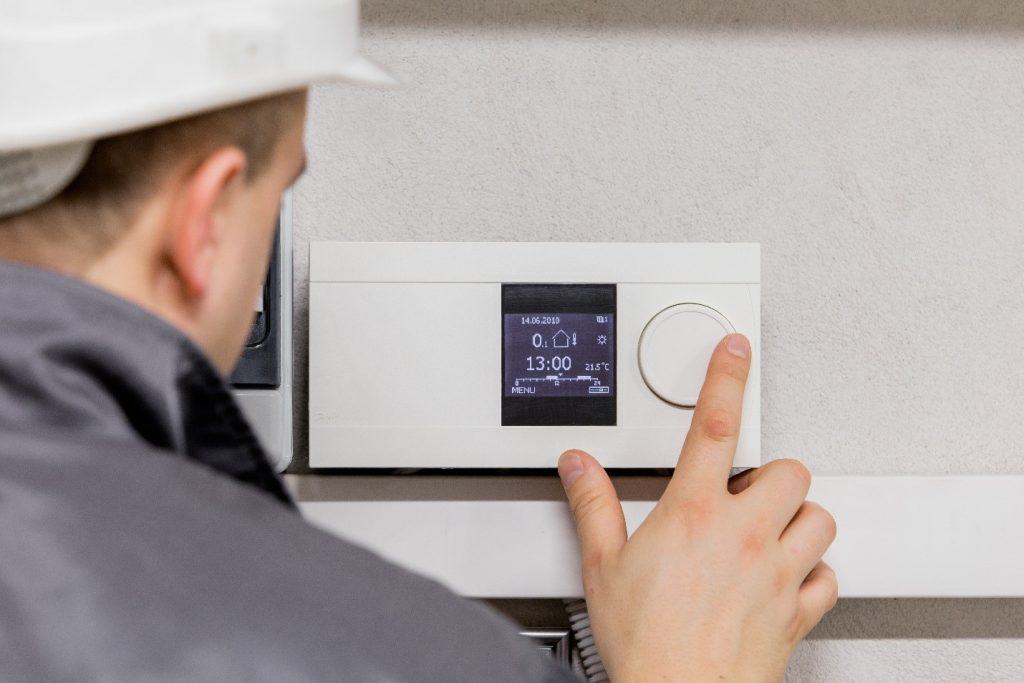
Heat pumps do not discharge air that is as hot as the oil or gas forced-air furnaces discharge air, so when they’re on, don’t expect their output to feel like that of a furnace.
But if you’re used to a certain air temperature and your heat pump generates much cooler air, take the steps below.
- Be sure that the thermostat is properly set. Increase the set temperature by five degrees F. And then wait until the heat comes on for a few minutes.
- Be sure that the registers for room-heating are open.
- Check the air filters.
- Make sure that the auxiliary heating elements
- Clean the outdoor condensing unit’s coils.
Note: In order to avoid icing up, a heat pump may go into defrost mode. It can temporarily generate cold air when this occurs. Be aware, too, that when in defrost mode and/or when it’s particularly cold outside, the heat pump will have to work harder to produce heat.
What to Know About Furnace Repair?
How long should a furnace last?
While some furnaces will last more than 40 years, a traditional gas furnace’s average lifetime is about 15-30 years. Your furnace can comfortably last for 15 years as long as you do frequent or annual repairs and maintenance.
Here are several variables that will influence how long your furnace will last:
- Your furnace’s make and model
- Furnace maintenance
- Ventilation and moisture levels
- Proper installation
Should I Replace My Furnace?
There are just too many factors when it comes to a furnace’s lifespan to provide a definitive response. To better decide if you should repair your unit, speak to an expert.
However, by upgrading their device rather than continuing to spend more money on maintenance, homeowners with furnaces over 15 years old could enjoy greater savings in the long run. Older furnaces can be highly unreliable, and fuel and maintenance expenses will cost you hundreds of dollars in extra costs.
A smart way to save money and improve home comfort and productivity is to replace a furnace that is older than 15 years with a modern high-efficiency model in order to minimize the amount of unused energy.
How to Find the Best Heating Service
In addition to maintaining your heater’s efficiency, heating repair and maintenance services are important to extend its lifespan. To stop emergency cases, it’s smart to keep your heater maintained properly. Of course, because such a machine is vital to any home, you should find the best heating service near you.
Some factors to consider before hiring a heating repair service:
- Home evaluation process: A good HVAC repair service will thoroughly ask you about your use of the heater and your power consumption. They will then investigate all the vents and electrical panels of your heating system.
- Reviews: Usually a heating service provider is local and you can easily find reviews online or by simply asking your neighbors.
- Costs: Before engaging with a heating service, you should ask about their hourly rate. Once they evaluate your system, they should give you an estimated cost including any parts that need changing.
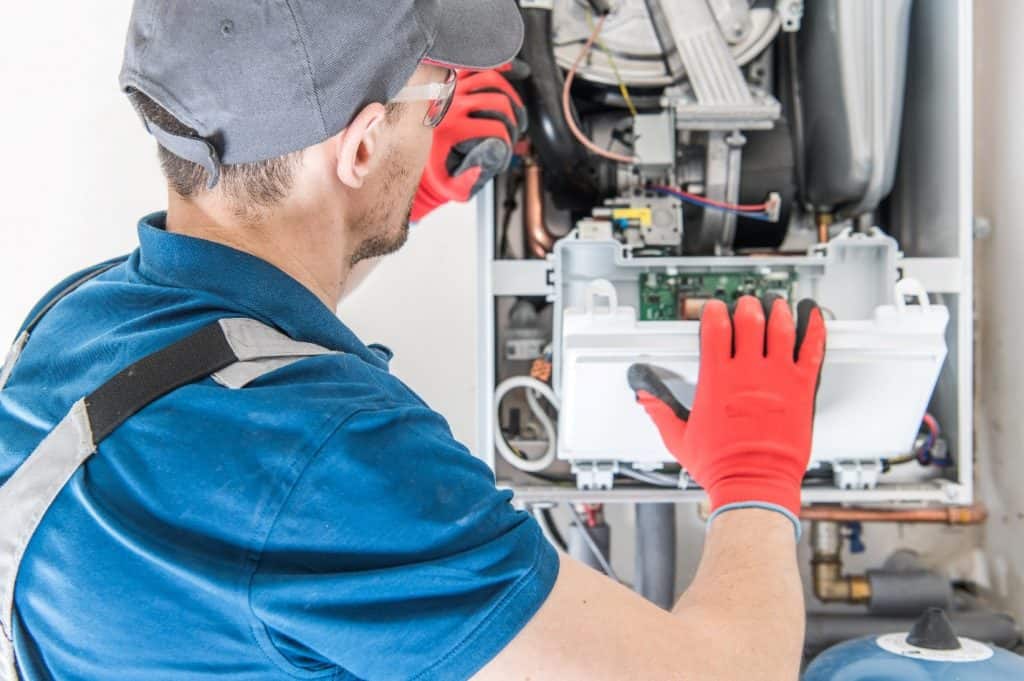
HVAC Repair Costs
If you want an accurate estimate, you should know now that it’s impossible to find by searching online. There are many factors to consider when trying to calculate the costs of fixing your heat problem. The price to fix a gas furnace heating system can be significantly higher, because parts are more expensive and it’s a complicated process. The average price of fixing an electric heater falls in the range of $100 and $500. A gas furnace can set you back as much as $1000 or even more sometimes if substantial parts needed changing.
Regular clean-ups and repairs will always keep your annual repair costs at the lower end.
Cost of a new gas furnace heating system
The cost of installing a new furnace heater differs from one place to another. The prices also vary between every company and the models they use. The total price of a new furnace along with its installation cost can be anywhere between $2,000 and $10,000 depending on the quality, and the space needed to be heated.
Cost of a new electric heating system
An electric heating system comes at a much cheaper price, but you should note that they do affect your electricity bill significantly. The price of a new electric furnace system falls in the range of $300 and $2000 depending on the size and efficiency. The higher the efficiency the less electricity it will need to heat your space.
Installation costs
Whether it’s installing a new system or replacing an old one, installation can take from a couple of days up to a week. The installation costs are usually calculated in billable hours by your HVAC repair technician. An hour can be anywhere over $50 and can be as much as $200 depending on the complexity of the job and the quality of your HVAC repair service provider.
